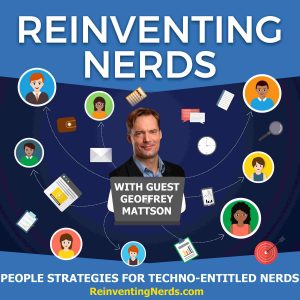![]()
Joanie interviews Calie Hendrickson, who is a systems engineer at Engility Corporation. Calie acquired her people skills along a roundabout path to the aerospace industry. She capitalizes on these skills to communicate with her multidisciplinary teams of engineers. Calie also talks about how she mentors across disciplines and the surprising benefits of cross-disciplinary mentoring.
Highlights:
Q: How did you get to where you are now?
“My path to get there was puddle jumping. I started out with an arts and science degree and moved into biotechnology… Then I moved across the country and did interior design. That’s where I got my people skills.”
“I came to be known as a specialist in data management engineering, which is managing the accessibility to data. Rather than having something in a giant database, you can categorize it and have it at your fingertips.”
Q: How do you organize data logically?
“We rely heavily on use case. It’s very user feedback driven. When I personally build a database, I’m likely not the person who will be using it day to day. Even though I think it’s perfect, the user may look at me like a deer in the headlights.”
Q: How do you learn what users do?
“I will go and sit with the person and observe them.”
Q: How do you engage in multidisciplinary communication?
“Especially in dealing with aerospace engineers—that can mean very different specialties ranging from thermal to avionics and software to structural to propulsion. We’re all engineers. We all have similar thought processes, but we have different things we focus on. It’s important to find a similar language so you can communicate with someone in a meaningful manner.”
Q: What does it mean to use a similar language?
“Anyone in any background has their own vocabulary. You need to be cognizant when you do that yourself, so you can clarify.”
Words of Wisdom:
“When someone uses an acronym you don’t know, ask what it is.”
“Seek feedback from trusted coworkers.”
“Study faces.”
Contact Calie:
Email: keepincontactwithcalie@gmail.com
LinkedIn: linkedin.com/in/calie-hendrickson-93468010a
Podcast: Play in new window | Download
